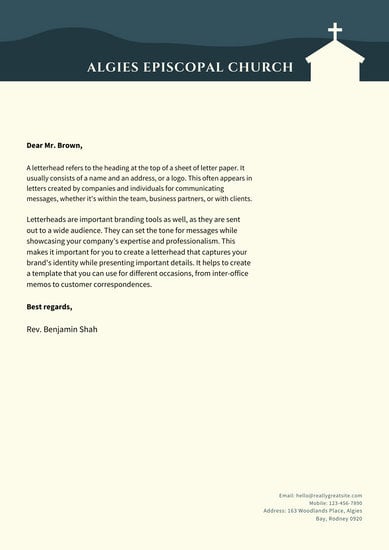Catholic Social Teaching On Gambling
Catholic Social Teaching covers all spheres of life – the economic, political, personal and spiritual. With human dignity at its centre, a holistic approach to development founded on the principles of CST, is what Pope Paul VI called ‘authentic development’. Explore the Catholic Social Teaching principles and how they guide the work of. Thus, it is not surprising that there is no official Catholic teaching on specif- ic governmental policies regarding gambling (although individual bishops or groups of bishops have sometimes responded publicly to gambling pro- posals within their dioceses). The 79th canon of the Council of Elvira (306) decreed that one of the faithful who had been guilty of gambling might be, on amendment, restored to communion after the lapse of a year. According to the National Council on Compulsive Gambling, 5 to 8 percent of people who play games of chance become compulsive gamblers, with another 15 to 20 percent gambling beyond a normal degree. The Council reports that more than half of compulsive gamblers rely on illegal means to support their habit. Casino gambling is a pernicious cancer. Catholic social teaching also notes that private property can become a kind of idol, leading people to assess the goal and meaning of human life simply in terms of dollars and cents. The right to private property also brings with it responsibilities, in particular the responsibility to care for and promote the common good.

By Basil L. Merenda • Posted November 24, 2020
Our country’s soul is troubled. The COVID pandemic, civil unrest, economic inequality, climate change and national uncertainty have exposed the glaring shortcomings in the ideology of laissez faire — unfettered free market — libertarianism of the Reagan Revolution which has dominated public policy for the last 40 years.
Its stark and strident principles of “survival of the fittest,” “greed is good,” and “trickle down” economics are diametrically opposed to Christian love and charity.
Even amid this crisis our country has an opportunity to experience, as Abraham Lincoln said, “a new birth of freedom” by replacing this misguided and exhausted ideology and tackling these serious problems with the century-old tenets of Catholic social justice, which are grounded in uplifting and inspiring values found in the eternal truths of sacred scripture, the Beatitudes and moral considerations.
Indeed, Catholic social justice principles are not mysterious, not parochial, not intolerant but are as American as motherhood and apple pie.
They include widely accepted values: protection of all human life; fair play in economic and social life; dignity of every person and their rights as workers and consumers; strong families and participation in neighborhood communities; charity for the poor and disadvantaged; active role for government to promote the general welfare; and ultimately, stewardship of God’s creation so we can pass on a vibrant and sustainable planet Earth for future generations.
In 1891, faced with the rise of a brutish and inequitable industrialized world economy, Pope Leo XIII used a papal encyclical, which is the most authoritative teaching a pope can issue, entitled Rerum Novarum to introduce the world to the teachings of Catholic social justice.
He proclaimed that the Catholic Church must always use its teaching authority to speak out on social issues with a particular preference for the poor, disadvantaged and vulnerable.
Leo went on to recognize the rights of labor through trade unions and collective bargaining, and he rejected unrestricted capitalism and “Godless” communism-socialism, acknowledging that government is necessary for promoting justice through the protection of these rights.
Catholic Social Teaching On Gambling Strategies
Over the years Pope Leo XIII’s successors, including the ardent anti-communist pontiff from Poland, St. John Paul II, have developed and advanced these principles in a series of timely encyclicals that convincingly demonstrated how Catholic social teaching can be applied to the many economic and social problems faced by our country and the world at the time.
Coming on the heels of the 2008 financial crisis of the Great Recession, Pope Benedict XVI issued Caritas in Veritate, advocating for more, not less, governmental intervention in the economy as a way to rein in Wall Street and its high-risk financing and unbridled greed that directly caused the global financial meltdown.
Catholic Social Teaching On Gambling Winnings
In 2015 Pope Francis applied Catholic social justice principles to climate change. Decrying the exploitation and destruction of the environment in his encyclical Laudato ‘Si, Francis called for “all people of the world” to develop accessible sources of renewable energy, so “swift and unified global action” can address the serious consequences of the existential threat to the planet posed by climate change, global warming and the lack of clean water and biodiversity.
On Oct. 3 of this year Pope Francis used his comprehensive and well-received encyclical Fratelli Tutti to apply the tenets of Catholic social teaching to the long list of woes our country has been experiencing. He condemned racism as a sin against God and noted the death penalty and war were unacceptable.

Francis then warned against selfishness in the economy and the marketplace and denounced the “dogma” of neoliberalism economics that resorts to “magic theories of spillover and trickle-down economics to solve society’s problems, including the pandemic” and prayerfully urged the entire world to work together on the COVID-19 pandemic, international politics and the dignity of women.
These Catholic-American values can lead to commonsense policy initiatives: 1) an increase in minimum wage to the more livable rate of $15 per-hour; 2) support for union card check to permit workers to more easily organize unions and protect their workplace rights; 3) guarantees that health care won’t be taken away from folks in the midst of a pandemic and neither would they be penalized for pre-existing conditions; 4) end racism in voting, criminal justice, health care and the economy; and 5) enact sensible climate policy to protect the planet.

Undeniably, Catholic social justice can restore social, economic and racial justice which have been under attack before our eyes.
In fact, folks of all faiths, religions and political registrations can embrace these principles, including the president-elect, Senate majority leader and speaker of the House, by just resolving to leave our children and grandchildren a more fair and equitable country and vibrant and life-sustaining planet Earth.
***
Basil L. Merenda is the beneficiary of a Catholic education from kindergarten to eighth grade, high school, undergraduate and graduate school, and law school. He holds a master’s degree in economics from the University of Notre Dame and a law degree from Villanova University. He has spent almost his entire legal career practicing in the public service, law enforcement and union labor law.
Catholic Social Teaching Pdf
Author: Rev. Chris Lowe '15


Rev. Chris Lowe, Pope St. John XXIII National Seminary Class of 2015, recently published a guide on Catholic social teaching.
As summarized on the website for Amazon, Catholic Social Teaching: Group Reading Guide is perfect for small groups, youth ministry, or adult faith formation. This clear and accessible guide helps us understand both the “whats” and the “whys” of the Church’s social teachings and how they provide the moral compass we need to navigate our complex and increasingly polarized world.
What does the Church teach about immigration, war, caring for our neighbor, the sacredness of human life from conception to natural death, employment and labor unions, climate change, and other crucial social issues? To fully understand, we need to look beyond politics, opinions, and popular culture. We need to appreciate the Church’s extensive social doctrines, their breadth, history, and the reasoning behind them. In these five informative and enlightening sessions, Fr. Chris Lowe guides us through the Church’s official Compendium of the Social Doctrine of the Church and introduces us to twelve vital pillars of the Church’s social teaching.
Rev. Christopher L. Lowe was ordained for the Archdiocese of Boston in 2015. Fr. Chris was born and raised in South Portland, Maine. He earned a M.S. in Computer Science from Worcester Polytechnic Institute and a B.S. in Chemical Engineering from the University of Maine at Orono. Prior to entering the Seminary, he worked for several technology companies in Massachusetts, including a ten-year stint at IBM. He also served as a music minister and organist at two parishes in Massachusetts - Saint Mary Parish in Ayer and Saint Catherine Parish in Westford.